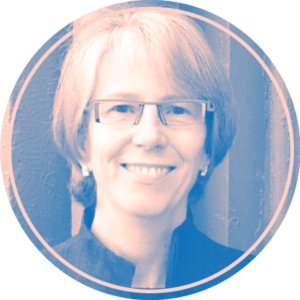 What are your pronouns?
What are your pronouns?
She, her.
Where are you from?
I grew up outside Philadelphia and have lived in Cincinnati for the last 38 years. I went to medical school and trained in Cincinnati.
What’s your specialty or area of expertise?
Women’s health care including gynecology and abortion services.
What first inspired you to become a doctor?
I was inspired to become a physician offering abortion services based on growing up before Roe and on my family’s strong pro-choice stance. My maternal grandfather was a Norwegian immigrant and had a good female friend who was raped by a priest and died from an illegal abortion. This was formative for my mother’s family and for ours as well. Even my Italian grandmother told me in college that if I ever needed help accessing an abortion, she would help me. What I learned in the process was that women who had economic means had the ability to control their family size through both contraceptive access and abortion done under the table as “miscarriage management.” Women who were poor did not have this access. My grandmother had an abortion in the late 1920s performed in a hospital by a physician. She and my grandfather felt their family size was complete and did not wish to continue an unplanned pregnancy. How fortunate she was to have access to this.
What story about one of your patients most sticks with you?
I am unsure that a single story is more memorable than another. There are patients whose situation is more difficult than others: homeless women, abused women, women with fetal anomalies. Some touch your heart more deeply, but they are all there for the same reason, to get help so they can move on with their lives. In the last few months, we had a patient come in who was in her late second trimester. She had run away from her very abusive partner out of state and was staying in a homeless shelter with her two young children. She had no money, no support either economic or social. Someone at the shelter had promised to keep her one- and three-year-olds while she had her procedure and then did not. We could not send a taxi for her as she did not have car seats. So the clinic bought her two car seats, and we went and picked up her children and brought them to the clinic where we watched them. All the staff pitched in and went and bought her diapers, baby food, etc. and gave these things to her and her darling children. What she said to us was, “No one has ever been kind to me like this.” Life should not be this hard. I have been given much in life, my mission is to give back.
What current policy issue especially motivates you to be an advocate?
Ohio is politically very anti-choice. The legislature recently passed a Down Syndrome abortion ban, is working on a D&E ban, and now has a proposed law that would ban abortion outright for any reason. Our governor would like Ohio to be the first state to make abortion unavailable, either through bans or TRAP [Targeted Regulation of Abortion Providers] laws. He is cleverly (if one wants to call it that) putting TRAP legislation in the budget bill, making it almost impossible to fight. It is hard to find a single policy issue to motivate me. There are so many, they run together.
Who is your social justice hero?
Bea Larsen and Catherine Weiss.
Bea is from Cincinnati and is unknown to our medical community. She is a retired attorney who started what eventually became Legal Aid in our community many, many years ago. She also started mediation and still works tirelessly to try and bring disparate sides to the table to discuss common goals. Her mother actually saw Margaret Sanger as a patient in the 1920s. She is an incredible role model for doing the right thing in the face of adversity. She went to law school after raising her three children to school age. The challenges to her generation of women were far greater than they have been to ours.
Catherine is known to our community for her great work at the ACLU. I had the pleasure of serving on the National Abortion Federation board with her. She is an amazing thinker and is tireless in her social justice efforts. Both women are an honor to know and to call friends.
What does receiving the William K. Rashbaum, MD, Award mean to you?
I believe that it is undeserved. Being in the company of previous recipients is daunting. But it is an honor to know that there are those in our community who believe in me and to know that perhaps, at some moment in time, I influenced others to do this important and rewarding work. I have often said that there is no greater work or job than abortion work. Every day and with every patient, we have the chance to give them their lives back. To allow them to care for themselves and others in the manner that is best for them. No other job in medicine gives us such great opportunity to actually do what we say we are here, as physicians and clinicians, to do and the reward associated with this. This award represents this gift and responsibility I have been given.